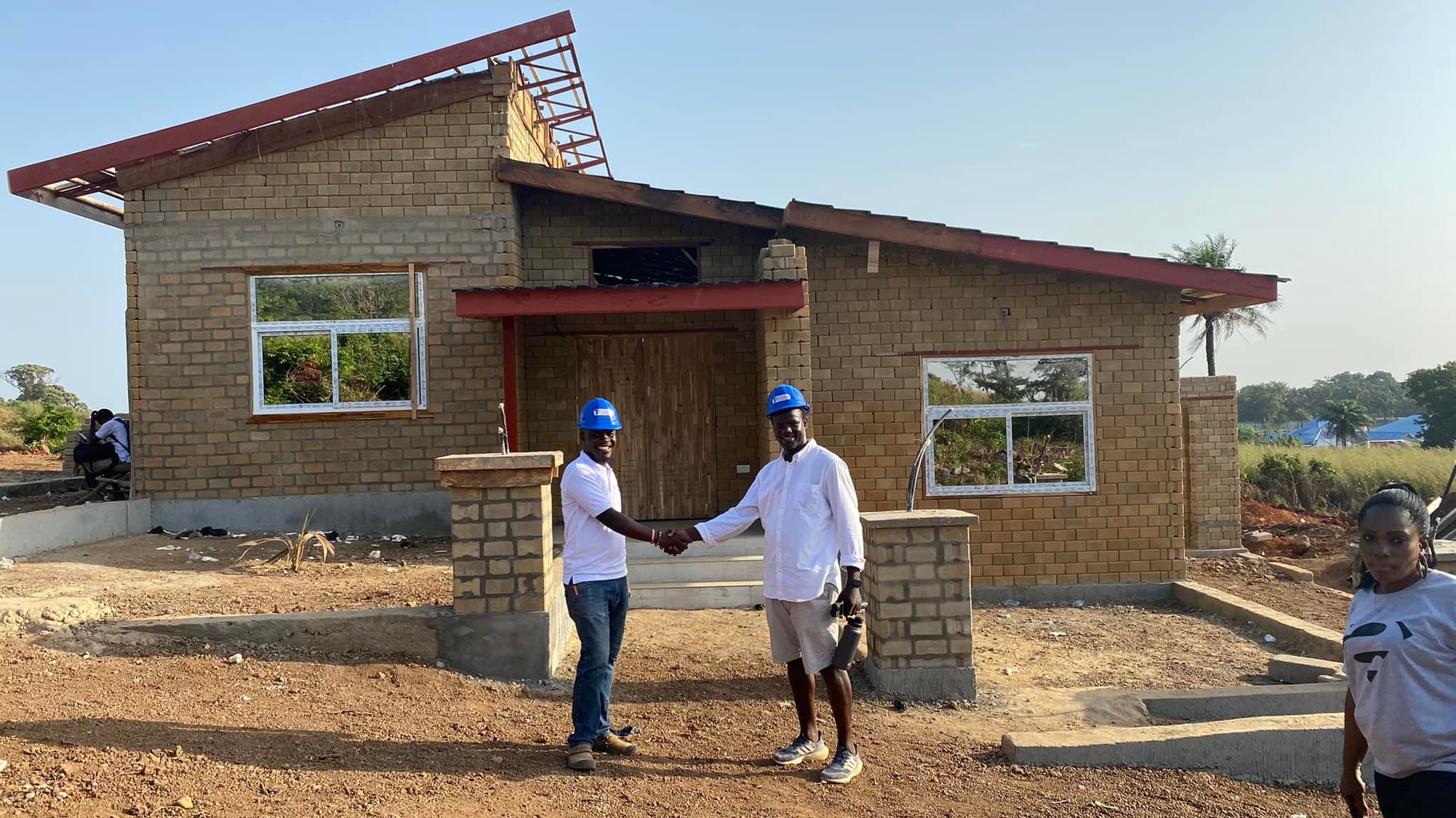
SIERRA LEONE, Freetown: Modern cities have eco-infrastructures, landscaping, and city planning. However, Freetown city which was planned in the nineteenth century fell short of these requirements.
The desire to acquire a home, as well as the frenzy of land grabbing, has left the formerly lush green peninsular desolate and grey.
This development is the result of a combination of ineptitude in urban planning and avarice.
The creation of well-planned housing, landscaping, terracing, and cul-de-sacs, is the first step in the gradual, organic process of developing a modern city.
Realizing this, Tamba Sheku Lamin CEO of TpEstate a company specialising in building detached, semi-detached and terrace homes have started an estate development at Kent, the outskirt of Freetown.
He said what spurred them to start the project was that in 2019, they had a bad experience going around the country with tourists from the United States who had traced their DNA to Sierra Leone. “That experience was not good as we were moving from one town to another. So as a result, we decided to create an estate company to build sustainable communities. Using eco-friendly materials and alternative building technologies, and that is exactly what we did.”
TpEstate is a real estate property developer that purchases and master plan parcels of land, designing and building houses out of eco-friendly materials and selling them.
The Kent Estate would have 14 buildings of which 5 are going to be single-family detached houses and the other 9 are going to be called this single room chalets for vacation rentals.
According to the CEO, Kent, “is just one of four estates that we have. We have another one at Mile 36 is gonna have about 25 homes; another one at Lungi Targrin that’s going to have five homes, and we’ve just acquired another plot of land at Banana island, and that’s going to have about 20, chalets, single room chalets for vacation rentals.”
Speaking about capital investment into the estate business CEO Lamin said that they started one year ago, “and to date, we have put in more than 700,000 United States Dollars”
He explained, that this includes training the staff; going to South Africa to get trained; buying the hydrophone patented machine used to manufacture the blocks; buying the land’s master plan in these lands, creating the designs and marketing and building the model home. “In addition to this we actually have built three stores at mile 36 and we’re building another house like a storage place and rooms for the workers. At the National stadium, we also built a showroom, one-bedroom type chalet so when you put all of this together, it’s a lot of money.”
So far, he said, “I would say it’s more than $700,000 that has already been invested into the business and we have over eight acres of land in total around the country already.”
The Kent gated community estate will have five single-family detached homes; each home will have a private drive and a garage to park your car.
The CEO also added that each home is going to have an outside toilet outside the kitchen, noting that the minimum bedroom size is going to be two bedrooms. “The average bedroom is three bedrooms each home have an internal kitchen, internal toilet and living room.”
He explained that the gated community is going to have 24-hour security and that electricity, water and sanitation will be centrally provided.
According to the CEO, for the toilet system, we will use the bio-digester toilet system which is much healthier than the traditional pit toilet.
The bio-digester toilet system will be used to also generate biogas that we can use to cook in the community and also will be used to generate fertiliser for the garden in the community.
There is going to be a community playground, a community swimming pool, a community park, footpaths and road 360 to go around the community. “ it’s eco-friendly. It’s sustainable. It’s, it’s healthy because you’ll be able to move around and exercise and all of the houses and the compound itself. It’s going to be accessible, you can walk around the compound in a wheelchair, and each one of our homes is wheelchair accessible.
He explained that to acquire the property you have two options. One is you pay cash. The other option is you sign an instalment payment agreement.
He said when paying cash client picks a plot. “The plot already has a design, we customise the design specifically to your taste and your lifestyle. We estimate the design in that plot. We tell you how much it’s going to cost, you pay us 55%, We build we hand over the keys you pay the balance.”
However, for payment by instalment, it’s the same procedure. You pay a 55% deposit, we start the building we will finish between 90 days and 120 days, the building can be as big as 1,500 square feet. 190 days to 120 days. “Once we finish, when you move in, we give you the keys you start making your instalment payment. You have a maximum of two years to pay.” Adding, “If you’re going to pay in one year, we cut your interest rate by half if you’re going to take the full two years, the interest rate would be somewhere between 19% to 23%.”
The CEO further explained that once it’s paid off, the conveyance is handed over to the owner. However, residents will have to be paying the maintenance fees for the utilities in the community.
CEO Tamba said the business model is “We sell to build, we don’t build to sell” We sell before we build because the selling process starts with the design. It’s to show clients the quality of materials used.
A client would have to look at our design once they agree on a design, “we will build it exactly to the design and specification. OG/26/12/2021




